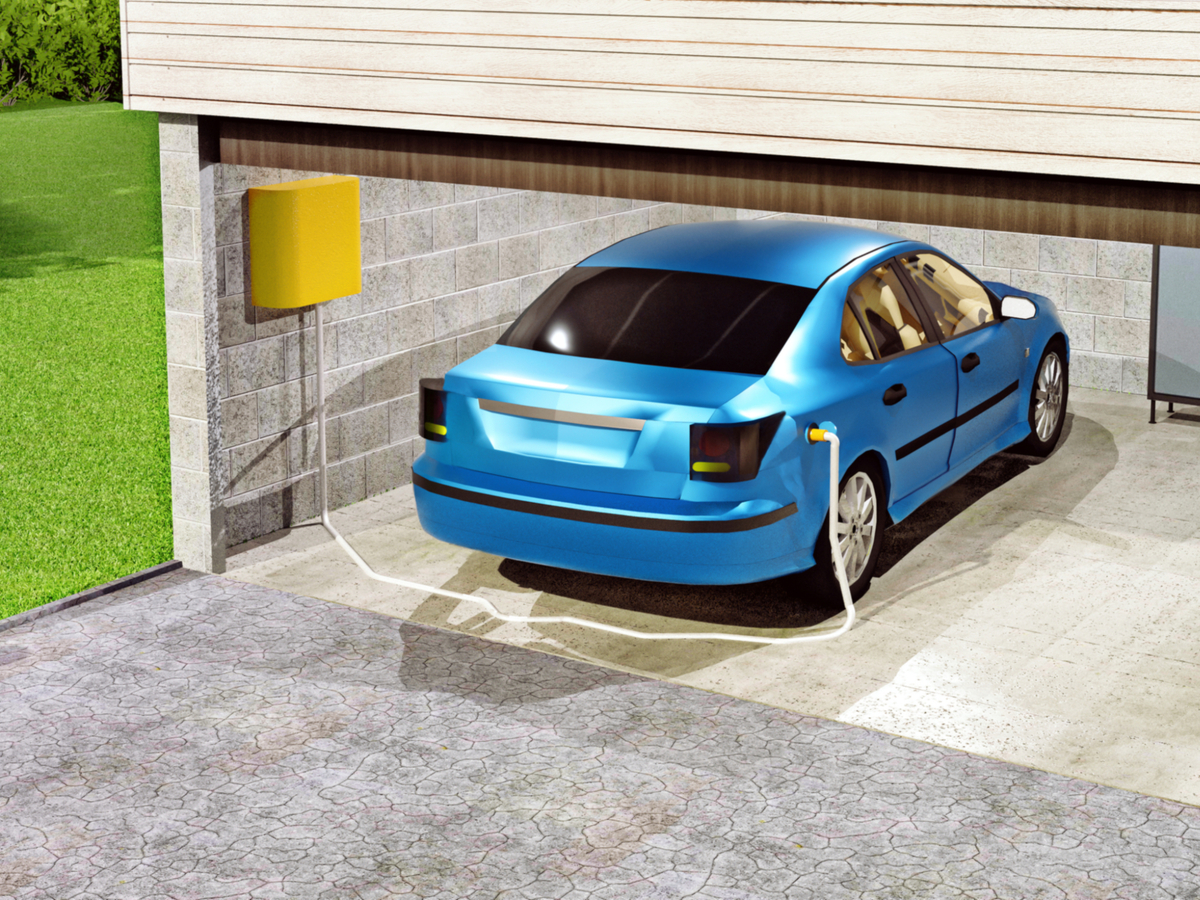Charging a plug-in hybrid or electric vehicle (EV) at home makes sense for many eco-friendly drivers. Instead of spending a few hours each day waiting around at a public charging station, you can rest easy knowing that your vehicle is fueled up and ready to go whenever you need it.
Between figuring out all of the terminology and calculating how much it will cost, you'll probably have a lot of questions. To start, you'll need to determine what type of charger you need.
What do the "levels" mean?
Your installation process is determined by the type of charger you need. Level 1 EV chargers plug into standard 120-volt wall outlets and can charge your car in 15 to 24 hours. Level 2 chargers plug into 240-volt outlets, which allows your EV to charge much faster.
Some vehicles can utilize quick and powerful DC fast charging found at public charging stations, but they're not practical for home use.
Should I hire a professional?
Because installing Level 1 chargers are as easy as plugging in any other electronic device, you won't need the help of an electrical contractor. The process for installing a Level 2 charger, however, is more complicated.
If your home already has 240-volt electric service installed for appliances such as clothes dryers and electric ranges, you'll just need to hire a certified electrician to complete the charging station installation. The National Electrical Code requires that Level 2 charging outlets are on a separate branch circuit. If your home isn't prepared to support the Level 2 wall connectors, you'll need an electrical service upgrade.
Check with your utility and a licensed electrician before modifying your electrical system or installing a charging station. An electrician will need to make sure your home's wiring complies with local, state and national codes and regulations, and the contractor may need to obtain a permit before installing the charging station.
How much does this cost?
Level 1 chargers are often included with the car, so they require no additional installation costs.
Basic 240-volt Level 2 chargers cost about $600, but some charging stations include features like an enhanced touchscreen display and smartphone app control, that will add to that cost. Your EV manufacturer should be able to recommend equipment that is compatible with your vehicle.
Installing the Level 2 charging station costs about $1,200 on average, but that price can vary based on included charging station features, contractor costs, and incentives. A necessary utility upgrade could add between $150 and $350 to your total cost.
Do I need to maintain my charging station?
You should periodically wipe down the charging station with a damp cloth and check the equipment for wear and tear. Some movable parts — especially the charging cord — could suffer damage or malfunction over time. Level 2 charging stations are often made up of smaller parts, so equipment can be easily upgraded without having to replace the whole unit.
Ready to join other EV owners who do more than 80% of their charging at home? Start taking advantage of low, stable electric rates by installing your own EV charging station.

